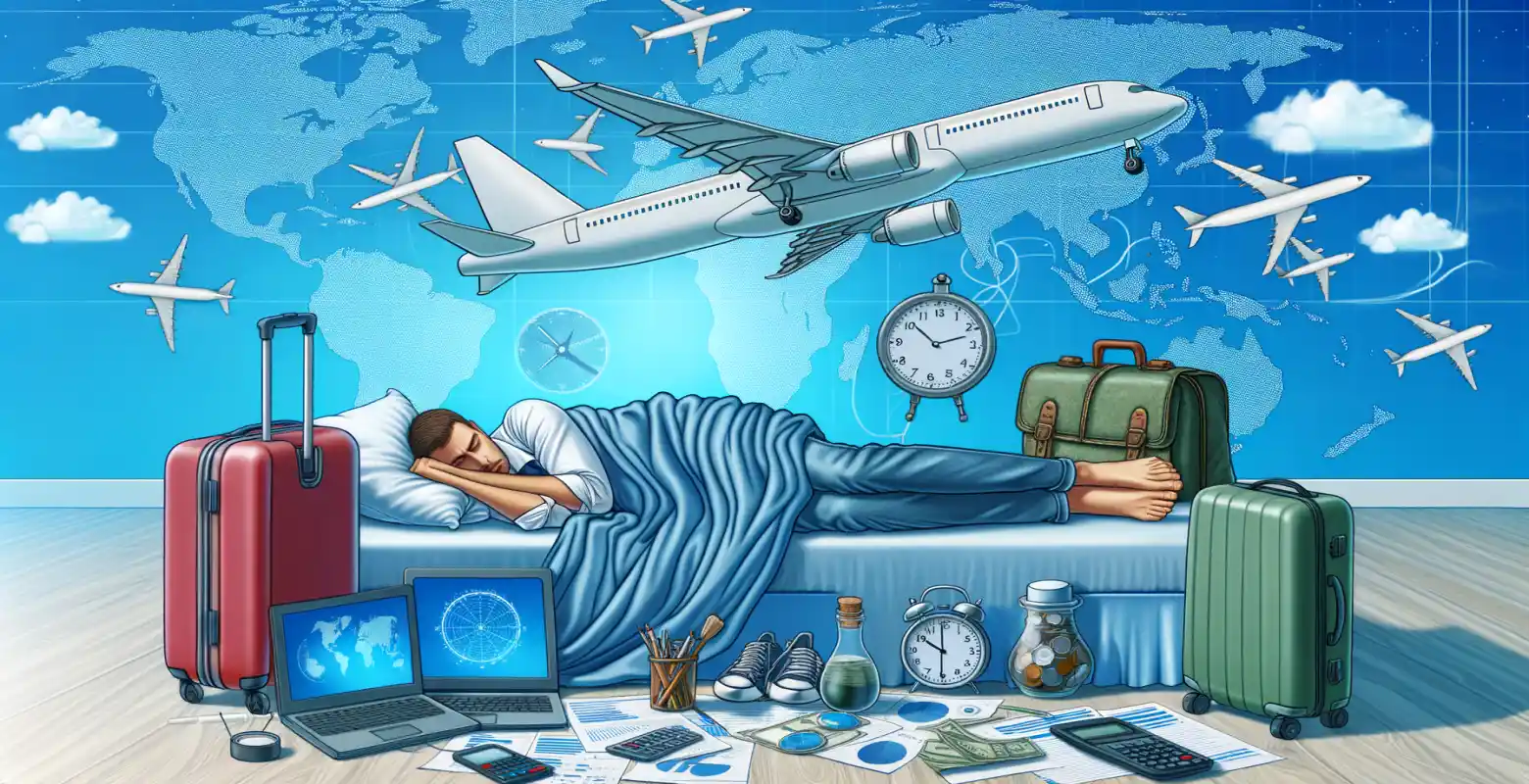The best ways to avoid jet lag
Introduction
Jet lag, also known as the syndrome of time zone change, is a problem that affects many travelers around the world. It is a physiological condition caused by disruption of the circadian rhythm resulting from rapid travel between different time zones. Due to globalization and the increasing availability of air travel, more and more people experience this unpleasant phenomenon. Jet lag can lead to fatigue, insomnia, concentration problems, and other discomforts, significantly hindering functioning in a new place. Therefore, understanding how to effectively prevent jet lag has become crucial for many travelers. In this article, we will look at the best ways to avoid jet lag that can help you enjoy your travels without unnecessary disruptions.
What is jet lag and how does it affect the body?
Jet lag is the result of rapid changes in time zones, which disrupt our internal biological clock, also known as the circadian rhythm. Our bodies are programmed to function in a 24-hour cycle, and changing time zones forces us to quickly adapt to the new local time. Symptoms of jet lag may include fatigue, difficulty falling asleep or staying asleep, concentration problems, and irritability.
Jet lag is more pronounced when traveling eastward because we shorten our day, which is more challenging for the body to adjust to than when traveling westward, where the day lengthens. Additionally, individual differences such as age, health status, and previous travel experiences can influence how strongly someone experiences the effects of jet lag.
Pre-trip Planning
Preparing in advance is a key step in preventing jet lag. Whenever possible, start gradually adjusting your sleep hours to the time in the destination several days before traveling. If you are flying east, try going to bed and waking up slightly earlier, and if you are flying west, do the opposite. This way, your body will slowly begin to adapt to the new schedule.
It is also advisable to book flights that depart in the evening and arrive at the destination in the morning or early afternoon. This will allow for better adaptation to the new time and the opportunity to rest during the flight.
During the Flight
During air travel, there are several strategies that can help minimize the effects of jet lag. Hydration is crucial; the dry air in the airplane cabin can lead to dehydration, which will only worsen the symptoms of jet lag. Drink plenty of water and avoid alcohol and caffeine, which can disrupt sleep and contribute to dehydration.
Try to also adjust to the destination time zone during the flight. For example, if you are arriving in the morning, try to sleep on the plane to be well-rested upon arrival. If you are arriving in the evening, try to stay active during the flight to be able to fall asleep later.
Upon Arrival
Upon arrival in a new time zone, it is important to adjust to the local time as soon as possible. Spend time outdoors and expose yourself to natural light, which will help your body synchronize with the new day and night cycle. Avoid napping if possible, and try to stay awake until the local bedtime to facilitate falling asleep and regulate the circadian rhythm.
Natural Supportive Measures
Some travelers use natural supportive measures to alleviate the symptoms of jet lag. Melatonin, a hormone naturally produced by the body, is often used as a supplement to help regulate sleep cycles. Taking melatonin before bed can aid in quickly adapting to the new time zone.
Lavender oil, used in aromatherapy, can also help with relaxation and improving sleep quality. Adding a few drops of oil to a bath or using it in a diffuser can create a soothing environment for falling asleep.
Technology in the Fight Against Jet Lag
Today, technology also offers tools to combat jet lag. There are mobile applications, such as Timeshifter, that help plan sleep, light exposure, and caffeine intake in a way that minimizes the effects of jet lag. These applications often use scientific data on circadian rhythms to provide personalized guidance.
Light-emitting devices, such as light therapy lamps, can also be used to simulate natural sunlight, which aids in regulating sleep rhythms in a new time zone.
The Future of Travel and Jet Lag
As travel becomes more common, researchers and scientists are constantly seeking new methods and technologies that can help in the fight against jet lag. In the future, we can expect more advanced technologies, such as wearable devices that monitor our biological rhythms and provide real-time feedback to help synchronize with new time zones.
Summary
Jet lag is a challenge faced by many travelers, but there are many strategies that can help alleviate its symptoms. By properly preparing before the trip, following certain guidelines during the flight, and using natural and technological supportive measures, we can significantly minimize the effects of jet lag. By remembering these tips, we can enjoy our travels without unwanted disruptions in our daily functioning. It's time to start planning your next trip and put these strategies into practice!






Number of comments: 0